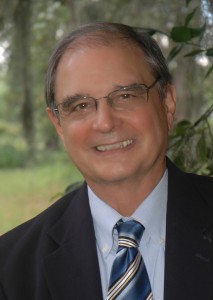 Manning J. Dauer Eminent Scholar in Political Science
Manning J. Dauer Eminent Scholar in Political Science
Ph.D, University of Minnesota, 1972
Course Syllabi:
- The Empirical Scope and Epistemologies of Political Science
- Empirical Theories of Politics
- American Legislative Development
- Congressional Politics
Lawrence Dodd’s primary concern is the U.S. Congress. His work emphasizes the dynamic and changing character of the Congress, particularly its tendency to experience cyclical swings between polarized periods of party government and depolarized periods of committee government.
Dodd’s cyclical theory has emerged step by step across forty years of studying Congress. His most complete and systematic development of the theory can be found in “Congress in a Downsian World: Polarization Cycles and Regime Change,” Journal of Politics, Volume 77 (2015): #2, pp. 311- 323. The evolution of the cyclical perspective is charted in his book, Thinking About Congress: Essays on Congressional Change (Routledge, 2012). A review symposium on the book can be found in the Journal of Politics, Volume 75 (2013): # 3, E23-E28.
Larry’s current empirical research on Congress, conducted in collaboration with Scot Schraufnagel, examines the role that moderate levels of political conflict play in fostering the enactment of landmark legislation. For an article from this work, see “Congress and the Polarity Paradox,” Congress and the Presidency, Vol. 39(2012): 109-132. Larry is also at work on the eleventh edition of Congress Reconsidered, which he has co-edited with Bruce Oppenheimer every four years since 1977 (Praeger and CQ Press, 1977-2013).
Dodd also has strong interests in Comparative Politics. His dissertation developed a game-theoretic approach to the study of cabinet durability in European/British Commonwealth parliaments (Coalitions in Parliamentary Government, Princeton University Press, 1976). More recently he has engaged with Leslie Anderson in on-going research on democratization in Central America, charting the ways in which citizens in Nicaragua have used the ballot box to change and refashion their governing regime (Anderson and Dodd, Learning Democracy, University of Chicago Press, 2005).
Larry’s work on Comparative Politics has greatly aided his study of the American Congress. Thus his game-theoretic study of cabinet formation and maintenance in parliamentary regimes alerted him to the role that legislators’ pursuit of power plays in legislative politics, a perspective he then took into his work on Congress. More recently, the impressive capacity that poor and poorly educated citizens in Nicaragua have demonstrated in using elections to change and reformulate their governing regime, as documented in Learning Democracy, helped him grasp the critical ways that voters can help foster ‘regime change’ in the American Congress (as detailed in ‘Downsian World’).
Dodd’s work on Congress has also benefited greatly from his doctoral training and continued immersion in the field of political theory. Particularly in areas such as Congress and American Politics that are awash with empirical research, the pressing need is for integrative theory that makes systematic sense out of the research findings and data at hand. Larry’s comparative work has focused extensively on data-gathering, to aid the study of topics and nations where empirical research was scarce. In contrast, much of his congressional work has focused on theory-building, drawing in the process on rational choice theory, social structural theory, social learning theory and theories of socio-cultural evolution.
Dodd’s scholarship has been enhanced by a Ford Foundation Fellowship, Congressional Fellowship, Hoover National Fellowship, Woodrow Wilson Center Fellowship, and support from the National Science Foundation. He has served as Program Chair (2010-11) and as President (2013-14) of the Southern Political Science Association, chaired the Legislative Studies Section of the American Political Science Association (2007-09), and served as a member of the APSA’s Trust and Development Fund Committee (1994-97), its Executive Council (2002-04), and its Elections Committee (2003-04). He currently serves on the Editorial Board of the American Political Science Review (2012-present).
Dodd’s teaching responsibilities at UF include graduate seminars on the Scope and Epistemologies of Political Science, Empirical Theories of Politics, American Legislative Development, and Congress: The Post-War Era. He also directs doctoral dissertations, chairing twenty-six dissertation committees in his twenty years at Florida. UF honored him one of five faculty members to receive its 2006-07 University-wide Award for Outstanding Doctoral Mentoring. And in recognition of his joint contributions to research and teaching UF honored him as the 2007 Teacher/Scholar of the Year, its highest faculty honor.
Prior to joining UF in 1995 Larry taught at the University of Texas-Austin (1972-80), Indiana University-Bloomington (1980-86), and the University of Colorado-Boulder (1986-95). He chaired fourteen doctoral committees across these twenty-three years, while also engaging extensively in undergraduate teaching.